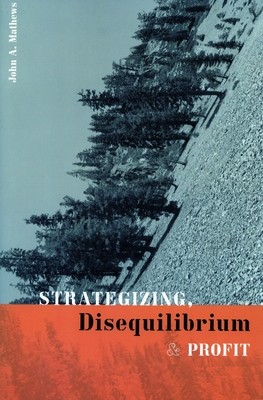
- We will send in 10–14 business days.
- Author: John A Mathews
- Publisher: STANFORD BUSINESS BOOKS
- ISBN-10: 0804752540
- ISBN-13: 9780804752541
- Format: 16.1 x 23 x 2.1 cm, kieti viršeliai
- Language: English
- SAVE -10% with code: EXTRA
Reviews
Description
This book starts from the proposition that frameworks used in business strategy lack realism because they are built on equilibrium-based foundations carried over from the domain of neoclassical economics. Mathews proposes instead a conceptual framework consistent with the turbulence found in real economies, and brings strategizing into conformity with such phenomena as innovation and technological change, network formation, capture of substitution effects in modular systems, and many other interesting features of modern economies that are passed over by mainstream equilibrium-based analysis. This new framework is based on the way firms assemble resources into a distinctive bundle, then build activities out of these resources to generate revenue, and link the resources to the activities through routines created and administered by management.
EXTRA 10 % discount with code: EXTRA
The promotion ends in 22d.03:29:39
The discount code is valid when purchasing from 10 €. Discounts do not stack.
- Author: John A Mathews
- Publisher: STANFORD BUSINESS BOOKS
- ISBN-10: 0804752540
- ISBN-13: 9780804752541
- Format: 16.1 x 23 x 2.1 cm, kieti viršeliai
- Language: English English
This book starts from the proposition that frameworks used in business strategy lack realism because they are built on equilibrium-based foundations carried over from the domain of neoclassical economics. Mathews proposes instead a conceptual framework consistent with the turbulence found in real economies, and brings strategizing into conformity with such phenomena as innovation and technological change, network formation, capture of substitution effects in modular systems, and many other interesting features of modern economies that are passed over by mainstream equilibrium-based analysis. This new framework is based on the way firms assemble resources into a distinctive bundle, then build activities out of these resources to generate revenue, and link the resources to the activities through routines created and administered by management.


Reviews